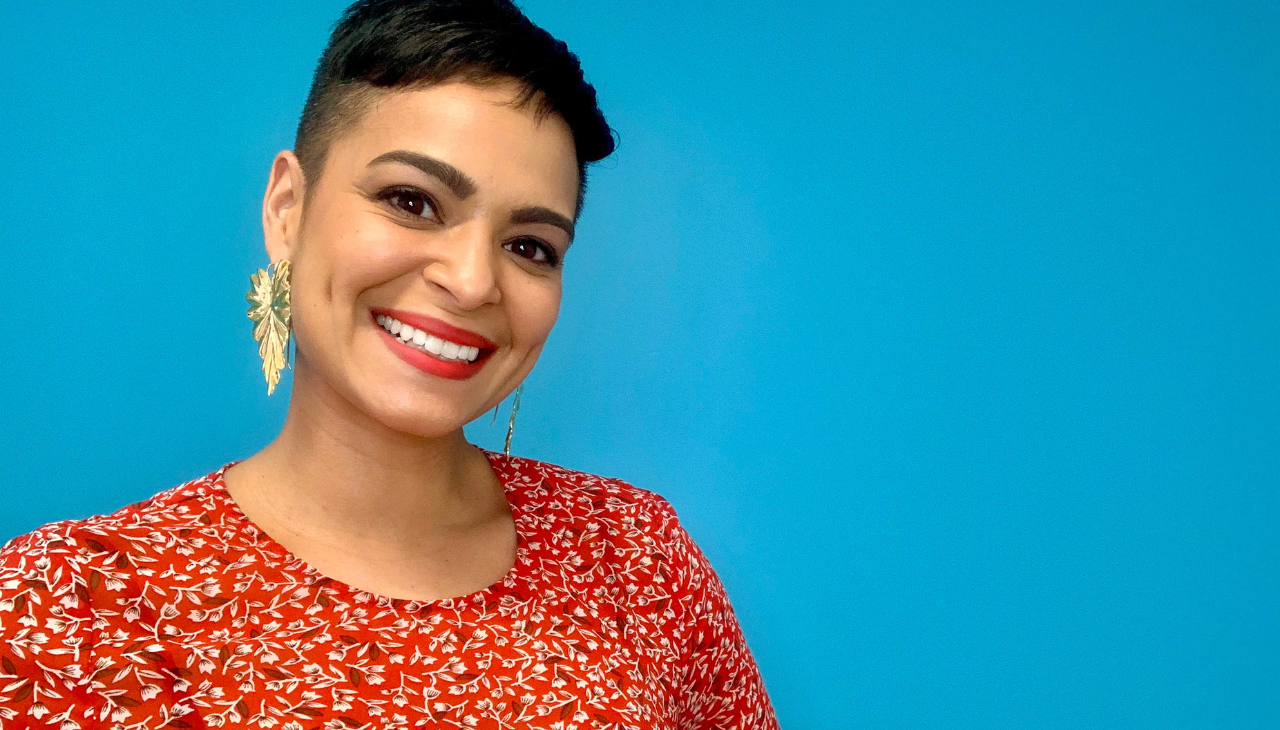
A confidence coach breaking barriers
Dr. Jasmine Escalera is helping women of color and students to reach their true potential.
I don't think that colleges and universities do get us ready for what we are going to experience
Dr. Jasmine Escalera is a first-generation Latina career and confidence coach for women of color who grew up in the projects of Brooklyn, New York. She graduated from Pace University with a Bachelor’s degree in Biochemistry and a Ph.D. in Pharmacology from Yale University.
“I didn’t have the knowledge, support, and guidance of how to truly be able to create a career that felt good for me and to come into a space where I could be authentically myself,” explained Dr. Escalera. “Truly own my culture, who I was, and my accomplishments and greatness.”
Dr. Escalera worked in nonprofit management and leadership, focusing on helping nonprofit organizations with children’s mental health and social development, assisting in establishing different project designs and clinical projects that would bring more resources to communities and communities of color, like Jasmine Escalera Coaching, where she teaches how to flourish in the workplace.
Her experience in STEM ignited a passion for coaching other women of color who experience toxic work environments, inferiority complex, and sense of hopelessness. She realized this is not solely found in STEM fields, but unanimously across the board.
As a Latina, a woman of color working in white-dominated workspaces, Dr. Escalera did a lot of code-switching and conforming to fit in. She embarked on a spiritual journey to reconnect with her culture and community—bringing elements of that into her career.
She explains that recognizing the stigma around mental health in the Latino community and wanting to teach children the importance of seeking assistance because physical wounds require treatment the same way mental health issues require aid.
Even though she learned about impostor syndrome later in her career, she experienced the need for validation and the thought of being a fraud. She also developed panic attacks from being in a toxic work environment.
Although she doesn’t regret pursuing a career in STEM, she wishes she would have listened to herself more instead of allowing external validation to dictate her ability to pivot.
Dr. Escalera realized that “everybody just wanted me to be happy, and it didn’t matter what I was doing, as long as I was happy doing it.”
Therefore, focusing on her morning mindset and morning rituals are important. Sitting in the sun and journaling, taking her dog for a walk, and taking in the sunshine are simple moments where she can be present and mindful of herself.
Dr. Escalera explains that coaching unearths the “many beliefs and value systems” passed down by parents, which can impact career change, the ability to negotiate, and the individual’s confidence level.
RELATED CONTENT
“What companies and organizations do not realize is that as women of color, we are not just supporting ourselves, we are upholding whole families and communities,” Dr. Escalera explained.
She stresses how difficult it is for women of color to resign, knowing too well the financial hardship they will face with that decision. Therefore, she advises those considering leaving their current place of employment to make sure their exit strategy is thorough—considering how this change can impact their mental stability and how it can trigger trauma.
“Be ready for that because it can be difficult to go through,” she assures.
Coaching College Students
Although Dr. Escalera mainly coaches professionals, she has done workshops for students as an opportunity to give them the support she never had.
“I don’t think that colleges and universities do get us ready for what we are going to experience,” explained Dr. Escalera, because students might not be prepared to handle potential toxicity in the workplace.
College students should think about mentorship and mentors who will help them navigate the different phases of their careers.
“It’s important to have mentors. Multiple mentors, not just one, but mentors in different fields. Mentors who can guide you at different stages of [the] career you’re in.”
She advises students to cultivate a professional community, put themselves out there and network; but to always “listen to your internal guidance system.”











LEAVE A COMMENT:
Join the discussion! Leave a comment.